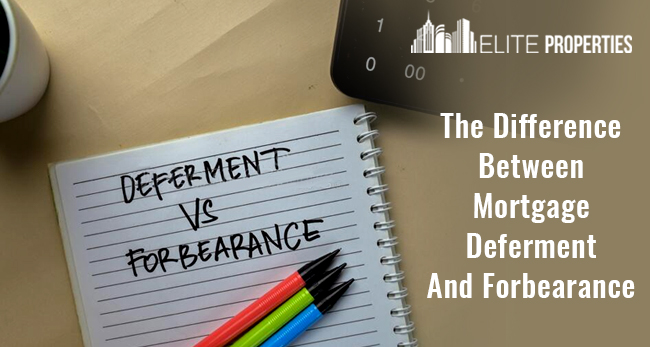Introduction
Mortgage deferment and forbearance are two options for homeowners that help in temporarily lowering their monthly mortgage payments. The major difference between these two options is whether the interest accrues and the time for repayment. Here, we will be talking about the difference between mortgage deferment and forbearance. There are multiple aspects when it comes to these methods like payments, interest, etc.
What’s the Difference Between Mortgage Deferment and Forbearance?
- Payment Assistance– In a mortgage deferment, the mortgage borrowers can delay past payments during the forbearance period. They can furthermore repay them at the end of the loan’s tenure. Here, as your mortgage payments are deferred, you are required to pay your monthly payments on time. Furthermore, forbearance pauses or reduces payments for homeowners suffering from financial hardships for a certain amount of time. Although the borrower has the option to make payments during the forbearance period, it’s not obligatory. In some cases, lenders may require the borrower to provide regular updates on their financial transactions during the forbearance period.
- Interest Accrual- In an interest accrual, the mortgage payments that have been deferred to the end of the loan’s tenure don’t accrue additional interest. Whereas, in forbearance, the interest accrues each month as scheduled.
- Repayment – Concerning repayment, in forbearance, you may have to catch up on the past payments post the forbearance period ends. Although, this depends solely on the loan and forbearance terms. For example, if your monthly payment structure is $1500 and you apply for 6 months of forbearance. You’ll owe $9000 towards the end of forbearance. Furthermore, deferment allows you to delay missed payments in case you sell your house or refinance.
What’s the Right Choice for You?
A deferment can be an ideal choice for you if you’ve come to the end of the forbearance period. You may benefit from deferment if you have just ended a period of forbearance. Also, if you are able to resume monthly payments but cannot afford to make up the payments missed during forbearance. This applies even to a repayment plan. Moreover, if you do not wish to permanently modify the loan terms you may be able to opt for deferment.
On the other hand, forbearance can be the right choice for one who is experiencing a brief period of financial hardship. This can be inclusive of job loss, illness, or any kind of disability. Here, you will have to provide proof stating the reason for the crisis.
Additional Information
COVID-19 may affect your ability to repay the outstanding payments. Although, under the CARES Act, you are able to request forbearance without providing documentation. If your loan is backed by either of the departments given below. You must have been requested an initial forbearance by September 30, 2021.
The departments are as follows-
- Department of Housing and Urban Development (HUD)
- Federal Housing Administration (FHA)
- United States Department of Agriculture (USDA)
- Department of Veterans Affairs (VA)
Furthermore, Fannie Mae and Freddie Mac do not impose a deadline for asking for an initial forbearance on your loan. Borrowers with federally backed mortgages won’t have to make a lump-sum payment at the end of the forbearance. Considering the COVID-19 adversity. Additionally, these borrowers will be eligible to defer the pending payments for up to 12 months.
The Bottom Line
According to the information above the conclusion is that forbearance provides momentary relief to homeowners suffering from the financial crisis. Although, at the end of the forbearance payments the monthly payments must be given in full. In such instances, homeowners may consider having deferment to postpone the one-time amount until the end of the loan’s tenure. Moreover, if you want to avoid the hassles and sell your house you can contact Elite Properties. We are a cash buying company which means we can help you sell your house fast for cash. Call us today at 718-977-5462 and sell your house in any condition and location.


Leave a Reply
You must be logged in to post a comment.